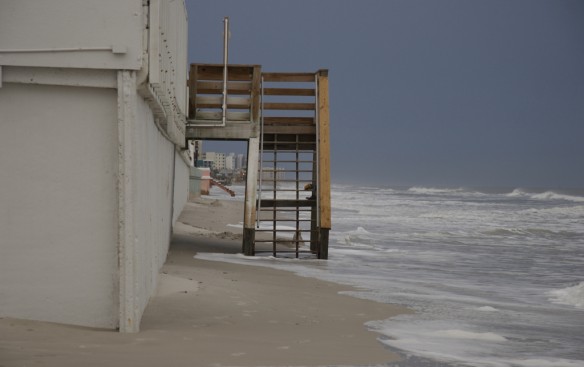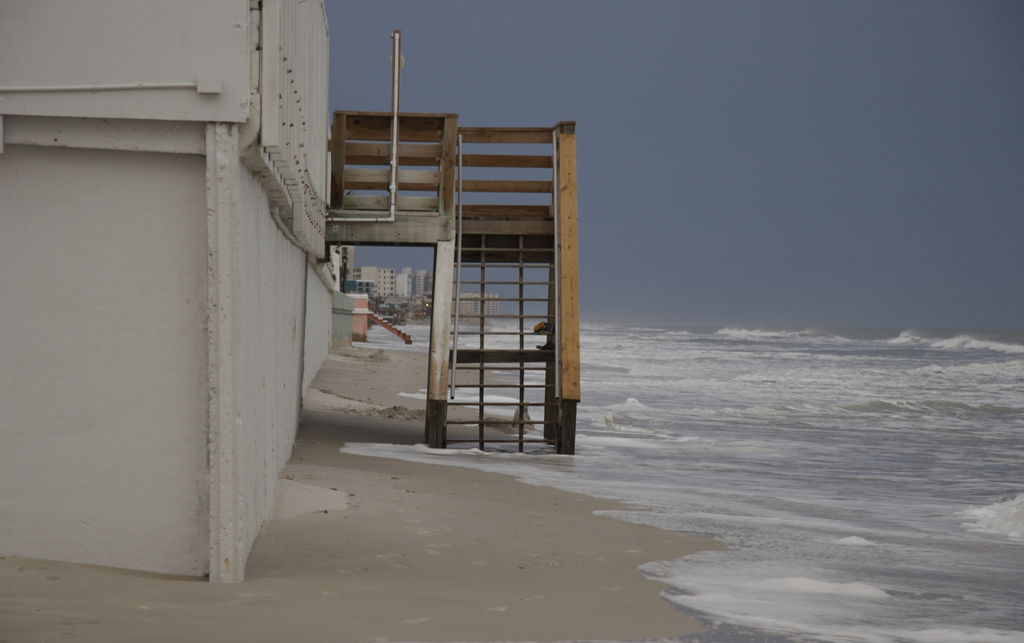
Beach erosion, New Smyrna Beach, south of Daytona. Photo source: ©© Tracy Lee Carroll
Excerpts;
“The state of Florida has a very weak coastal management program and has carried out no realistic planning about how to respond to sea-level rise. The rise is expected to be 2 feet and perhaps significantly more by the year 2100. In fact, leading politicians of the state, including the governor, deny global climate change and have forbidden their lieutenants from even mentioning the seven words “climate change, global warming, sea level rise…”
Read Full Article, Tampa Bay Times
Can Florida Prepare for Climate Change Without Saying the Words?, CS Monitor (03-09-2015)
In Florida, climate change is the global phenomenon that must not be named. Since 2011, the state Department of Environmental Protection employees have been banned from using that term as well as “global warming” and “sustainability” in their work, according to a new report…
In Florida, officials ban term ‘climate change’, Miami Herald
The state of Florida is the region most susceptible to the effects of global warming in this country, according to scientists. Sea-level rise alone threatens 30 percent of the state’s beaches over the next 85 years.But you would not know that by talking to officials at the Florida Department of Environmental Protection, the state agency on the front lines of studying and planning for these changes…
Palm Beach Mid-Town Dredge Project, A Youtube Video (02-04-2015)
“Beach nourishment projects like this have become commonplace along the US East and Gulf Coasts. These projects have immediate environmental impacts through burial of nearshore habitat and increased turbidity during project placement.The cumulative environmental impacts of doing this repeatedly on the same beach while conducting projects from Maine to Texas is unknown. But, we should be concerned. ” —Robert S. Young, PhD, Director, Program for the Study of Developed Shorelines, Professor, Coastal Geology, Western Carolina University









